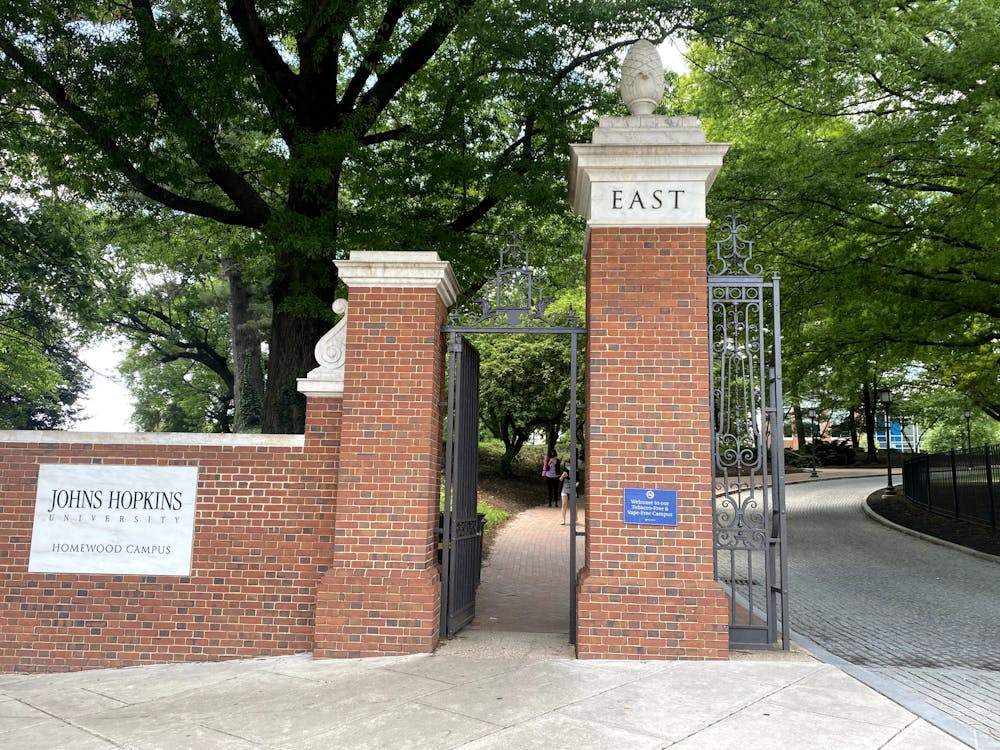Many student groups are returning to in-person activity for the first time since March 2020. In-person events are allowed to resume without special approval if attendance will be under 50 people, but events with over 50 people in attendance must request said approval.
Indoor events require masking regardless of vaccination status but do not have social distancing requirements. Outdoor events do not have capacity limits or masking requirements.
Additionally, student groups are once again permitted to host off-campus social events, which also require approval from the University.
Junior Hanna Al-Kowski, president of the Barnstormers, stated her excitement about returning to in-person theater activities in an interview with The News-Letter.
“It has felt very natural and very necessary to step into performing,” she said. “It’s been a little more difficult due to COVID-19 guidelines, but having to deal with a little bit of bureaucracy has been worth it. With virtual theater, you lose the crowd’s energy, which is the actor’s lifeblood.”
Performing arts groups will be permitted to have live audiences pursuant to the capacity limits of their spaces. The Barnstormers expect to have a live audience in Arellano Theater in Levering Hall, which is one of the only theater spaces available for use since the Mattin Center’s demolition.
However, the Aerial Circus Club does not have a facility to conduct its main club affairs on campus. They rely on University transportation to operate after receiving the University’s approval.
Junior Dorothy Thompson stated her appreciation for the University’s support for her club’s situation and cited her ability to obtain funding for the club.
“The University’s been very understanding of the fact that we can’t do our club activities on campus. We are allowed to use Hop Vans if they are available, and the process is pretty seamless,” she said. “Sometimes I underestimate Hopkins’ ability to be flexible with events and students having fun, but they were really helpful and have a lot of options to ask for more funding.”
Leadership, Engagement and Experiential Development (LEED), formerly known as Student Leadership Development, is continuing to shift all operations to the newer Hopkins Groups platform. This includes the elimination of the former Event Scheduling portal, with which student groups could previously reserve rooms and outdoor spaces.
All student groups must use the Hopkins Groups check-in function to track attendance at their events. It is also mandatory for event hosts to check the status of the attendees’ Prodensity app.
Senior Amanda Yuen, editor-in-chief of the Podcast on Foreign Affairs (POFA), believes that the Hopkins Groups platform has some flaws that sometimes present obstacles to room reservations and event registrations.
Yuen described instances when she had an event get approved, then denied, then approved again the next day. Other times, the site will say that a room has gotten booked and approved, but the event itself has not.
“Generally it is easy to navigate Hopkins Groups, although sometimes it’s frustrating in terms of getting a response and approval from LEED,” she said. “The room booking process has been kind of difficult in that there’s not a clear way to communicate with the LEED office in a timely fashion. If there was a more streamlined process to do that, it would be helpful.”
Al-Kowski agreed that Hopkins Groups is easy to navigate but is wary about the timing of the switch to the platform.
“The new system is certainly much nicer than the old one, but I feel that imposing a new virtual system the same year we’re readjusting to in-person life is perhaps too much to do at once,” she said.
A Place to Talk (APTT), a peer listening group, began hosting outdoor listening hours during the Spring 2021 semester. Fall 2021 has allowed them to return to Brody rooms and indoor spaces for listening.
APTT Public Relations Chair Nikki Gander stated the importance of Zoom as a venue for virtual activity but expressed her enthusiasm for returning to more typical activities for the club.
“Zoom rooms were great for figuring out how to adapt to being virtual, but being able to listen to people and share a physical space with them is really important when it comes to APTT,” she said. “We had more visitors in the first week of in-person listening than we had all of last semester.”
Yuen explained that returning to in-person activity has been useful for some aspects of the club, but a virtual modality will still serve a purpose for the club.
“Our transition to in-person has made recruitment a lot easier in terms of getting POFA’s name out there and connecting with more students. It’s been great to see the interest level from freshmen and sophomores,” she said. “We haven’t had any of our [general body meetings] in person; everything has been virtual since we found that it’s easier to operate that way.”
Gander underscored the importance of being in-person in terms of building club camaraderie.
“Connectivity among members within APTT, especially members who trained just last semester, is hugely aided by being in-person,” she said. “It’s been great to meet with new members because they’re very excited; having them feel included has been a lot easier in-person.”
Al-Kowski expressed similar sentiments to Gander about the club’s in-person dynamic.
“We just kicked off our Freshman One Acts, and already it feels like there’s so much more community than there was online,” she said. “Doing an activity together as a unit in the same physical place is really different, but it has facilitated growth already.”





